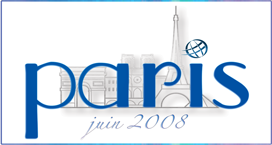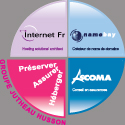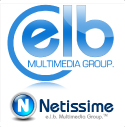GENERAL INFORMATION
RESTAURANTS
There are an abundance of restaurants in Paris and in the Montparnasse area. Click through to the restaurant page to find out more.
CLIMATE
Paris has an oceanic climate and is affected by the North Atlantic Current, so the city has a temperate climate that rarely sees extremely high or low temperatures. The average yearly high temperature is about 15 °C (59 °F), and yearly lows tend to remain around an average of 7 °C (45 °F). The highest temperature ever, recorded on 28 July 1948, was 40.4 °C (104.7 °F), and the lowest was a −23.9 °C (−11.0 °F) temperature reached on 10 December 1879. The Paris region has recently seen temperatures reaching both extremes, with the heat wave of 2003 and the cold wave of 2006.
Rainfall can occur at any time of the year, and Paris is known for its sudden showers.
CURRENCY
The Euro (EUR) is the official currency in France. Currency can be exchanged at banks, bureaux de change and some large hotels, though you will get a better exchange rate at the ATMs. Major credit cards are widely accepted, as are travellers cheques, particularly in major tourist destinations. Foreign currency is not accepted.
XE Personal Currency Assistant
ELECTRICITY AND VOLTAGE
France has 220-volt 50-hertz electrical service. Before you leave, check whether your electric shavers, travel irons, hair dryers, or other personal appliances will operate at the higher voltage. If not, you must buy new appliances or bring a voltage converter, also called a transformer. Dual-voltage hair dryers are quite easy to find, and electric shavers are often dual-voltage, so you may not need a transformer.
Remember that outlet prongs are shaped differently. France uses European-style plugs, having two round pins and requiring the use of mechanical plug adapters for American appliances. These are inexpensive and available from many sources, including hardware stores. Keep in mind, however, that plug adapters are not electrical converters; they merely adapt the plug so it can be connected.
Finally, since current alternates at 50 cycles, not 60 as in the U.S. and some other countries, expect your dual-voltage hair dryer, for example, to run a little slower.
IS THERE A FEE FOR ATTENDING THE MEETING?
No. Registration and attendance at the meeting is free. You are required to pay for your accommodations and any meals or snacks not provided during the meeting.
HOW TO GET TO MONTPARNASSE FROM CHARLES DE GAULLE AIRPORT
Most attendees will likely arrive at Charles de Gaulle airport in north Paris.
The easiest transportation solution is to take the coach: Air France offers a coach service between Charles de Gaulle and Gare Montparnasse – just in front of the Meridien Montparnasse. Line 4 will cost 14 euros single and 22 euros return.
Find out more here:
http://www.cars-airfrance.com/
http://www.airfrance.com/double6/passage3.nsf/
Other options for traveling to Montparnasse include:
Taxi: It is easy to catch a taxi from the airport. The drive will take between 30 and 45 minutes depending on traffic. Expect to pay between 60 to 70 euros.
Metro: The fastest route is to take the RER B train to central Paris. Montparnasse Bienvenue is on Metro lines 4, 6, 12 and 13. As such it can be accessed from the following RER B stations: Gare du Nord, Chatelet and Denfert-Rochereau. The first two stations are main hubs so it may be faster and simpler to change at Denfert.
In central Paris, you can buy a single-trip ticket for 1.5 euro. Many buy a “carnet” or a book of 10 tickets for the cheaper price of 11.10 euros. You can also buy a one-day, two-day, three-day or five-day pass (cost: 8.50, 14, 19 and 27.50 euros respectively).
TIPS
French law requires that restaurant, cafe and hotel bills include a service charge (usually 12% to 15%); however, many Parisians leave a few coins on the table in a restaurant, unless the service was particularly bad. They rarely tip in cafes and bars when they've just had a coffee or a drink. In taxis, the usual tipping procedure is to simply round up to the nearest €0.50 or €1.00 no matter what the fare.>
IS FOOD AVAILABLE AT THE MEETING?
Yes. In addition to restaurants in the hotel and near the hotel where you can enjoy lunch, on the full meeting days there are mid-morning and mid-afternoon coffee breaks. The meeting schedule and agenda contains a complete list of breaks.
WHERE CAN I GO FOR FOOD CLOSE BY?
Montparnasse is famous for its cafes and bars. If you come out of the venue, take a right and cross over the road, you head into the small back streets where a wide variety of places, catering for all visitors from businessmen to bohemians.
The area surrounding the Edgar Quinet Metro station is a good place to start. In the triangle of Montparnasse Bienvenue, Edgar Quinet and Vavin Metro stations, you should be able to find something to your liking.
The most famous spot in this area for eating and drinking is La Coupole on Montparnasse Boulevard, which has played host over the years to Henry Miller, Salvador Dalí, Ernest Hemingway, F. Scoot Fitzgerald, and Pablo Picasso.
For those looking for a livelier nightlife, the districts of Saint-Michel and Les Halles are close by (10 mins by Metro; 40 minutes by foot). For those wanting to look further afield, Pigalle, home of the famous Moulin Rouge, can be reached on Metro line 12 from Montparnasse Bienvenue. It will takes around 35 minutes.
WHICH MEETINGS CAN I ATTEND THAT ARE OPEN TO ALL ATTENDEES?
Any meeting that is not marked “Closed” in the meeting schedule and agenda is open to all. However, if the group hosting a meeting chooses to close that meeting (or a portion of it), they will notify the people in the room that this portion of the meeting is closed.
PERSONAL SAFETY
As in any other big city, it is important to consider personal safety. For this reason:
- Keep an eye on your luggage. Use large and colorful labels to identify them easily on airport conveyor belts or delivery balconies.
- Change your money only in exchange houses or authorised bank agencies. Do not accept help from strangers like luggage porters and agents in airports.
- Only use official taxi stands or taxis from the cooperatives indicated by the event organisation.
- Always keep your belongings in sight, especially in open areas like restaurants, snack bars, parks, and even in the event's venue. Don't leave backpacks, purses, bags, photo or video cameras hanging on chairs or on the floor.
- Don't wear expensive looking jewelry and watches.
- Try not to carry large amounts of cash.
- Don't disclose your personal data to unknown persons and avoid carrying passports and travel checks when you go for a walk or a drive. In case of loss, theft or robbery, report the fact immediately to the local police.
- For your peace of mind, use the hotel's safe to keep valuable objects, your documents, passport and airplane tickets, and use photocopies of your documents when you go out.
- If you go out for a walk or to public and open areas, keep your belongings near to your body and avoid going out alone. It's recommended to avoid going out carrying your laptop or other electronic devices.
- If you need to go to a cash machine, preferably use those located in malls (shopping centers) or banks. Avoid cash machines on streets or dark places. If you need help, always ask an employee of the bank.




















